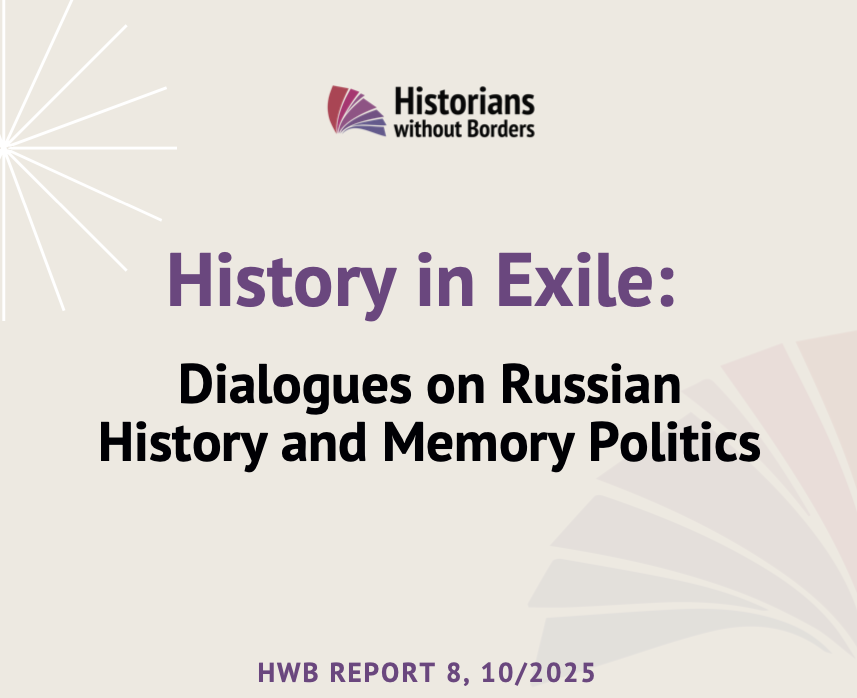The History in Exile project was launched in response to the urgent challenges historical research, education and memory politics are facing after Russia’s full-scale invasion of Ukraine in 2022.
History has increasingly become a political tool utilised by the Kremlin to justify the war against Ukraine, to question the statehood of the neighbouring countries, and to silence independent domestic voices. In Russia, many historians and educators have lost access to archives, faced censorship, or been forced into exile.
The project History in Exile: Dialogue on Russian Memory and History Politics in the Nordic and Baltic Countries was created to provide a space for dialogue, sustain the continuity of historical work, and strengthen resilience against the misuse of historical memory. Furthermore, it also sought to examine how official Russian memory politics affect neighbouring societies, particularly in the Nordic and Baltic states. The project has been supported by the Nordic Council of Ministers.
From September 2024 to September 2025, a series of events took place in Helsinki, Stockholm, and Tallinn, in a hybrid format with both onsite and online participation, bringing together historians, teachers, journalists, and civil society actors. These seminars combined open discussions with focused professional exchanges, encouraging debates and the sharing of experiences across borders. Moreover, the project also helped to maintain Russian-language professional exchanges among displaced historians, creating opportunities for cooperation and peer support.
The project was coordinated by Historians without Borders in Finland and the partners of the project were The Swedish Historical Society, Estonian History and Civics Teachers’ Association, Aleksanteri Institute (University of Helsinki), EuroClio – European Association of History Educators.
Report published
The report of the project has been published, compiling the findings of the dialogue and knowledge exchanges. The key insights of the project include:
- Memory politics as a tool of control: Russian state narratives turn history into a political tool, narrowing space for independent research and discussion. Furthermore, silenced discussions about the past in democratic societies can generate risks of simplification.
- Exile as a state of both rupture and renewal: Historians in exile face precarious conditions, and yet, they have established new peer networks, digitisation initiatives, and transnational research projects.
- Postcolonial/decolonial and pluralistic approaches: Scholars are re‐examining inherited frameworks, including marginalised voices, and questioning imperial assumptions, frameworks and narratives.
- Reaching younger audiences: New storytelling formats, such as podcasts, online and multimedia exhibitions, as well as social media, are essential for fostering historical literacy in the digital age. Particular attention is needed for Russian-speaking youth in the Nordics, Baltics, and wider European contexts who often encounter conflicting historical narratives across languages and media.
- Education under pressure: Independent educators are developing cross-border, multilingual resources that help students in Nordic and Baltic countries distinguish between sustainable historical knowledge and propaganda and engage with diverse, at times conflicting memories.
Download the report in English below:
Download the report in Russian below:
Additional information:
Heta Hedman
Secretary General
Historians without Borders in Finland
heta.hedman@hwb.fi
tel. +358406608979

